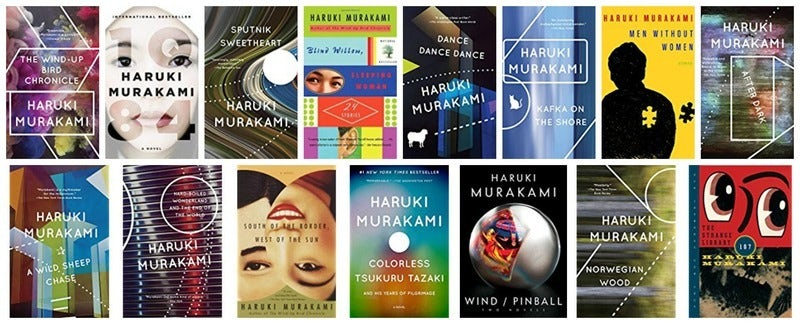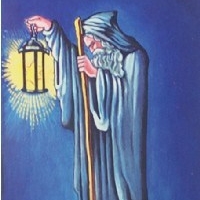So, as opposed to my Bad Book Review, the books I review here are good. Really good. I highly recommend them.
*WARNING, HERE BE SPOILERS SHOULD YOU CHOOSE TO READ THIS WORK*
“Well, finally, the events I’ve been through have been tremendously complicated. All kinds of characters have come on the scene, and strange things have happened one after another, to the point where, if I try to think about them in order, I lose track. Viewed at more of a distance, though, the thread running through them is perfectly clear. What it all boils down to is that you have gone over from my world to the world of Noboru Wataya. That shift is the important thing. Even if you did, in fact, have sex with another man or other men, that is just a secondary matter. A front. That’s what I’m trying to say.”
Toru Okada’s summation of his “adventures”, so to speak, pretty much sums up the whole of Haruki Murakami’s The Wind-Up Bird Chronicle. Telling the story of Toru Okada’s search for his cat and then his wife, Wind-Up Bird, tells a somewhat convoluted story involving a dozen different factors brought together by the thinnest of threads. The plot itself can draw comparisons to the tale of Orpheus and Eurydice from Greek mythology. In the tale, Orpheus is a great musician and Eurydice is his beautiful wife, and one day when walking, she is bitten by a snake and dies, going to the underworld. Orpheus travels to the underworld himself and plays for Hades, allowing him to take his wife home on the condition he not look at her until they reach the surface. Unable to contain his excitement, Orpheus looks back only to see Eurydice trapped again in the underworld, this time for good.
Like Orpheus, Toru is attuned to music, taking note of particular classical works he enjoys throughout the story (Murakami himself is quite the fan of classical music as well and injects his love and knowledge into much of his work). And like Orpheus, Toru loses his wife to another world, the world of her brother, the well known and universally liked (except by Toru) Noboru Wataya. And just like Orpheus, Toru must travel into this other world to save her. He travels there through a wall at the bottom of a dried up well, into a sort of mystical/dream/other world, inhabited by Noboru Wataya and the strange women Toru meets through him, namely the sisters Malta and Creta Kano. Toru, whose persona is very much a symbol of passivity, also demands concrete facts and answers in the face of the unknown, much like Orpheus needing to look back and see Eurydice. In fact Toru’s passivity almost makes the story less about him and more about the people around him who use him for their own devices. So many parts of the story only seem to be connected through Toru, such as the long tale of Lt. Mamiya’s time in Manchuria and Siberia during and after WWII and Nutmeg Akasaka’s (yes, the names are a little strange) back story and the story of her father in China and her son Cinnamon’s backstory and the strange girl May Kasahara down the street. At times it was difficult justifying the existence of so many sparsely interlocking stories and threads that had little connection to the story other than being backstory. The excessive backstories and long winded and detailed explanations very much fit the trend of other Japanese works, like anime for example.
In the end Toru doesn’t lose his wife like Orpheus but he doesn’t quite get her back either. It’s a sort of fizzle ending that left me feeling a little disappointed that the passive Toru didn’t finally come through and achieve full victory in the end. Toru’s wife Kumiko is saved from her brother’s “other world” but she ends up in jail and never physically appears in the novel again, only providing a final wrap up through a letter to Toru.
Despite its strangeness, I found something really endearing about Wind-Up Bird. I enjoyed the history lesson on Manchuria and Manchukuo and liked the varying cast of characters who tended to play with Toru like a doll on a string. The prose felt a little too flowery at times for my taste, but I have a feeling reading the un-translated Japanese version (if I could read Japanese) would provide for a better experience. It also includes a few chapters the English version left out. Overall, I really liked the novel and would recommend it to anyone who likes WWII history, Japan or Japanese culture, post-modernism and/or disjointed narratives.
Shout out to my girlfriend, Destinee, for recommending it to me in the first place!
Other works by Haruki Murakami include 1Q84, Norwegian Wood, Colorless Tsukuru Tazaki, Hard-Boiled Wonderland and the End of the World, and A Wild Sheep Chase.

All images are property of their respective owners

